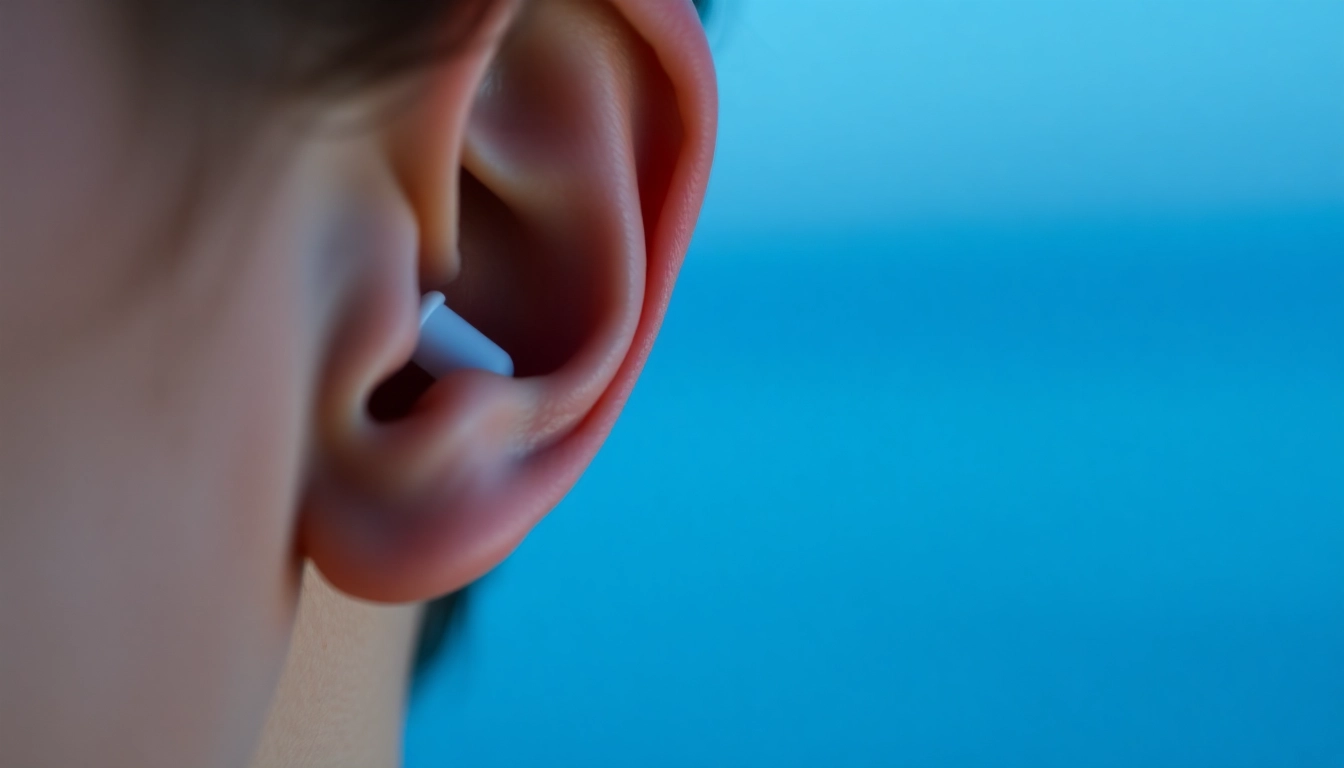Understanding Anxiety and Its Impact
Anxiety is a common experience that affects millions of people worldwide. It manifests in various forms and can lead to significant emotional and physical distress. Understanding anxiety, its symptoms, and its different types can be the first step toward managing it effectively. In this comprehensive guide, we will explore various techniques and strategies for dealing with anxiety and living a healthier, more fulfilling life.
What is Anxiety?
Anxiety is a natural response to stress or perceived threats. It is characterized by feelings of worry, nervousness, or fear, often accompanied by physical symptoms such as increased heart rate, sweating, and restlessness. While occasional anxiety can be beneficial, acting as a motivator in stressful situations, excessive anxiety can interfere with daily life and lead to anxiety disorders.
Common Symptoms of Anxiety
Recognizing the symptoms of anxiety is crucial for understanding its impact. Common symptoms include:
- Emotional Symptoms: Feelings of unease, irritability, or being overwhelmed.
- Physical Symptoms: Rapid heartbeat, muscle tension, fatigue, or difficulty concentrating.
- Behavioral Symptoms: Avoidance of anxiety-provoking situations, changes in eating or sleeping patterns, and reliance on substances.
Types of Anxiety Disorders
According to the American Psychiatric Association, there are several types of anxiety disorders, each with unique characteristics:
- Generalized Anxiety Disorder (GAD): Persistent and excessive worry about various aspects of life.
- Panic Disorder: Recurrent panic attacks and a fear of future attacks.
- Social Anxiety Disorder: Intense fear of social situations.
- Phobias: Irrational fears of specific objects or situations.
- Obsessive-Compulsive Disorder (OCD): Characterized by obsessive thoughts and compulsive behaviors.
- Post-Traumatic Stress Disorder (PTSD): Developed after exposure to a traumatic event.
Practical Techniques for Dealing with Anxiety
While understanding anxiety is important, applying effective strategies can help mitigate its effects. Here are several practical techniques for dealing with anxiety.
Mindfulness and Relaxation Methods
Mindfulness involves being fully present and engaged in the current moment, and it can be an effective way to manage anxiety. Techniques include:
- Meditation: Practicing mindfulness meditation can help you focus your thoughts and reduce stress.
- Deep Breathing: Inhale deeply through your nose for a count of four, hold for four, and exhale through your mouth for four. Repeat several times to calm your nervous system.
- Progressive Muscle Relaxation: Tense and relax different muscle groups in your body to reduce physical tension.
- Visualization: Picture a calm and peaceful scene to help shift focus from anxiety-inducing thoughts.
Physical Activities That Help
Regular physical activity can significantly reduce anxiety symptoms. Some beneficial exercises include:
- Aerobic Exercise: Activities like running, swimming, or cycling increase heart rate and release endorphins, promoting better mood and reducing anxiety levels.
- Yoga: This combines physical postures, breathing exercises, and meditation, making it effective for stress reduction.
- Dancing: Engaging in dance can provide both a workout and a joyful release.
- Walking: Simple but effective, walking outside can improve mental health and reduce feelings of anxiety.
Creating a Personal Coping Strategy
Developing a coping strategy tailored to your needs can make a significant difference. Consider the following steps:
- Identify Triggers: Keep a journal to track when you feel anxious and identify patterns.
- Set Goals: Break down tasks into manageable steps and set achievable goals to reduce overwhelm.
- Use Affirmations: Positive affirmations can help shift your mindset from negative to positive.
- Establish a Routine: A structured daily routine can create a sense of normalcy and control.
Professional Help: When and How to Seek It
While many techniques can help manage anxiety, sometimes professional intervention is necessary. Knowing when and how to seek help is crucial.
Identifying the Right Therapist
Finding a mental health professional who understands your needs is vital. Consider the following when searching for a therapist:
- Specialization: Look for therapists who specialize in anxiety disorders or related areas.
- Credentials: Verify their licensing and qualifications in mental health.
- Compatibility: It’s essential to feel comfortable and understood by your therapist.
- Consultation: Schedule initial consultations with potential therapists to gauge compatibility.
Types of Therapeutic Approaches
Therapists may use various approaches to help manage anxiety. Common treatments include:
- Cognitive-Behavioral Therapy (CBT): Focuses on identifying and changing negative thought patterns.
- Exposure Therapy: Involves gradual exposure to anxiety-provoking stimuli to reduce fear responses.
- Dialectical Behavior Therapy (DBT): Combines cognitive-behavioral techniques with mindfulness strategies.
- Mindfulness-Based Stress Reduction (MBSR): Uses mindfulness meditation as a tool for mitigating anxiety symptoms.
Medication Options and Their Benefits
In some cases, medication may be necessary to manage anxiety effectively. Here are common types of medications used:
- Antidepressants: Such as selective serotonin reuptake inhibitors (SSRIs), which can help alleviate symptoms.
- Benzodiazepines: Typically prescribed for short-term relief of severe anxiety symptoms, but with caution due to dependency risks.
- Buspirone: An anti-anxiety medication that may help manage symptoms without the risk of dependency.
Long-term Strategies for Sustained Relief
While immediate strategies for dealing with anxiety can be beneficial, long-term relief requires consistent effort and the incorporation of healthy habits.
Building a Support Network
Having strong social support can play a crucial role in managing anxiety. Strategies to develop your support network include:
- Reach Out: Stay connected with friends, family, or support groups who can provide understanding and encouragement.
- Join Groups: Engage with support groups where members can share experiences and coping strategies.
- Volunteer: Helping others can foster a sense of community and reduce feelings of isolation.
Maintaining Healthy Lifestyle Choices
Implementing lifestyle changes can have a profound impact on anxiety levels. Here are important areas to focus on:
- Nutrition: A balanced diet rich in whole foods can improve mood and overall well-being.
- Sleep: Aim for 7-9 hours of quality sleep per night to help manage anxiety and improve functioning.
- Avoiding Substances: Reduce or eliminate caffeine, alcohol, and nicotine, which can exacerbate anxiety symptoms.
Tracking Progress and Adjusting Tactics
Keeping a progress journal can be invaluable in managing anxiety. Regularly reflect on what strategies work best for you, and consider the following:
- Set Milestones: Celebrate small successes to maintain motivation.
- Revise Goals: Be flexible with your coping strategies and set new goals as needed.
- Monitor Symptoms: Track your anxiety levels regularly to notice patterns and adjust accordingly.
Resources for Managing Anxiety Effectively
In addition to the strategies discussed, various resources can assist in managing anxiety more effectively.
Recommended Books and Articles
There are many valuable books and articles that provide insight and strategies for managing anxiety. A few noteworthy titles include:
- The Anxiety and Worry Workbook: A practical guide that includes exercises for managing anxiety.
- Feeling Good: The New Mood Therapy by Dr. David D. Burns offers cognitive-behavioral techniques for alleviating anxiety and depression.
- Mindfulness-Based Cognitive Therapy for Depression: A guide that integrates mindfulness into the cognitive behavioral framework.
Online Tools and Apps
There are numerous apps designed to help individuals manage anxiety, such as:
- Headspace: Offers guided meditations and mindfulness exercises to help reduce anxiety.
- Calm: Focuses on relaxation techniques, sleep stories, and breathing exercises.
- Woebot: An AI-driven chatbot that offers mental health support and cognitive-behavioral techniques.
Support Groups and Communities
Connecting with others who understand what you’re going through can be beneficial. Some resources include:
- NAMI: The National Alliance on Mental Illness offers various support groups and resources.
- Meetup.com: Find local support groups focused on mental health and anxiety.
- Reddit: Subreddits like r/anxiety provide a community for sharing experiences and advice.
Dealing with anxiety requires understanding, support, and the application of effective strategies. By incorporating mindfulness, healthy habits, and professional assistance, individuals can manage their anxiety and improve their overall quality of life.



